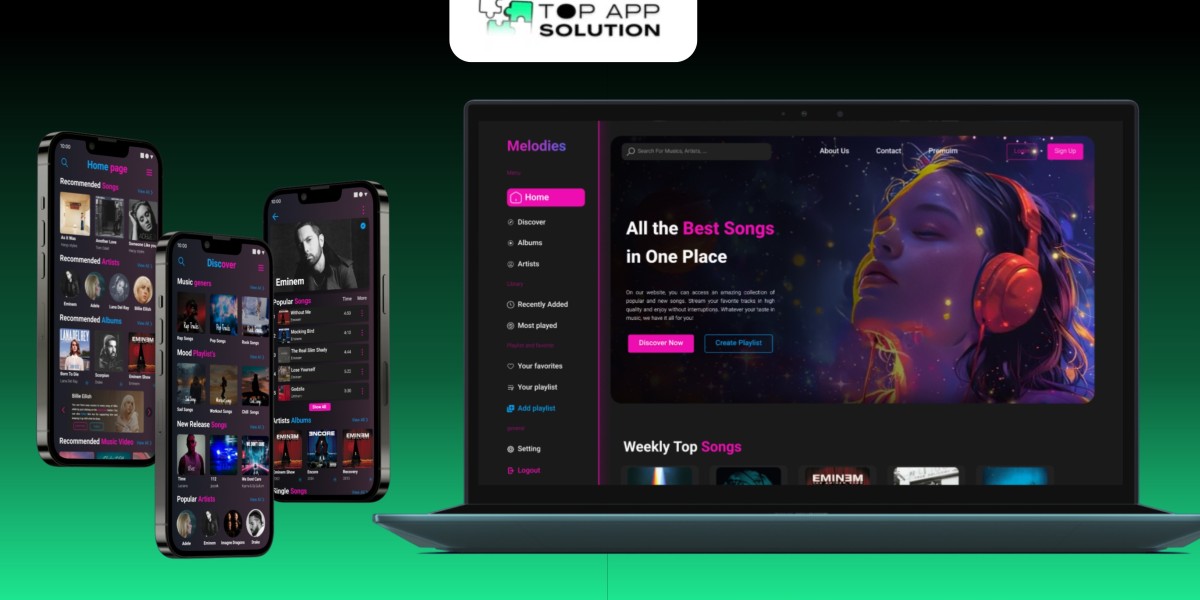Every business, regardless of its size or industry, sets specific goals — whether it’s increasing sales, improving customer retention, expanding into new markets, or streamlining internal operations. The question today isn’t if you need technology to support those goals, but how you’re going to use it effectively.
One of the most powerful tools in the modern business toolkit is a custom mobile app. Far beyond being a convenience or luxury, a well-designed mobile app can directly support and accelerate multiple business objectives. Here's a straightforward breakdown of how apps can serve your core business goals.
1. Boost Customer Engagement
A mobile app helps maintain a continuous connection with your customers. Through features like push notifications, in-app messages, and personalized offers, you can engage users more frequently and meaningfully. Higher engagement naturally leads to better retention, word-of-mouth referrals, and brand loyalty — all of which support long-term growth.
Example: An e-commerce app offering real-time updates on order status keeps users engaged from purchase to delivery.
2. Drive Sales and Increase Revenue
One of the most direct ways an app supports your business goals is by improving the buying experience. Mobile apps simplify browsing, reduce friction in the checkout process, and offer personalized promotions that can lead to higher conversion rates.
You can also implement in-app purchases, subscription models, or advertising to unlock new revenue streams.
3. Enhance Brand Visibility and Positioning
Your app icon sits on the user’s home screen, acting as a mini digital billboard for your brand. Every time a user sees it, your brand is reinforced in their mind. A consistent, well-branded mobile app also reflects professionalism and trust, which improves your brand's positioning in the market.
This is especially useful when entering competitive industries where visibility and credibility are key.
4. Improve Customer Support and Satisfaction
An app gives users quick access to help — be it live chat, support tickets, FAQs, or service status updates. This leads to faster issue resolution and improved satisfaction. When customer service becomes more efficient, complaints reduce, reviews improve, and retention increases — all supporting your reputation and customer relationship goals.
5. Collect Actionable Customer Insights
Mobile apps offer a valuable opportunity to collect first-hand data. You can track user behavior, preferences, and patterns in real-time. This allows you to make data-driven decisions, refine marketing strategies, and launch better services. The more you understand your customers, the more accurately you can align your business strategy with their needs.
6. Streamline Business Operations
Internal apps or features within customer-facing apps can help automate manual processes. Whether it’s appointment scheduling, digital payments, staff coordination, or inventory management — mobile technology simplifies tasks and reduces operational overhead.
Streamlined operations reduce cost and increase efficiency, both of which support your bottom-line goals.
7. Support Market Expansion
When you want to scale your business geographically, a mobile app becomes your digital storefront. Whether someone is 2 km or 2,000 km away, they can interact with your brand just as easily. Apps eliminate physical limitations, giving you access to wider audiences without setting up physical locations.
With location-based features, multilingual support, and targeted promotions, you can easily reach and serve new markets.
8. Reinforce Customer Loyalty Programs
Mobile apps are an ideal platform for hosting and managing loyalty programs. From digital punch cards to reward points, customers are more likely to engage with loyalty features when they’re seamlessly integrated into an app. This increases repeat business and deepens customer loyalty — both essential for long-term success.
Example: A coffee shop app with a “buy 5, get 1 free” stamp feature encourages regular visits and higher spending.
9. Enable Personalized Marketing
Apps allow you to tailor content, product suggestions, and promotional offers based on each user's preferences and history. Personalized experiences drive more meaningful interactions, higher satisfaction, and better conversion rates. Instead of broad, one-size-fits-all campaigns, you can target specific segments with precision.
This helps align marketing efforts with revenue and engagement goals more effectively.
10. Build a Scalable and Future-Ready Digital Infrastructure
Investing in an app means you're preparing your business for what’s ahead. The digital landscape is shifting fast, and customers expect mobile convenience as a standard. Having an app gives you a flexible platform that can grow with your business, integrate with other tools, and evolve based on market demand.
Final Thoughts
A mobile app is far more than a digital add-on — it’s a strategic tool that touches every area of your business. Whether your goals are customer-focused, revenue-driven, or operational, a well-crafted app can help you reach them faster and more efficiently.
In a market where attention spans are short and competition is fierce, the ability to offer instant value, seamless service, and consistent branding through an app is no longer optional — it's essential.
If you're serious about aligning technology with your business goals, now is the time to consider investing in a custom mobile app tailored to your needs.
by TAS (Top App Solution) | Custom App & Website Development company



